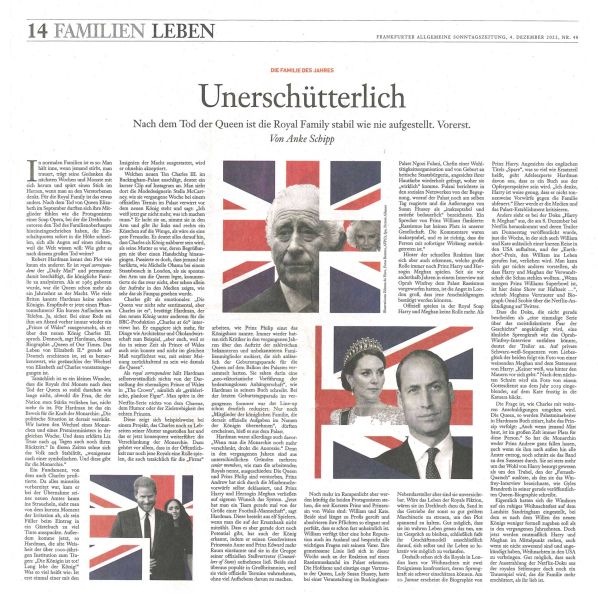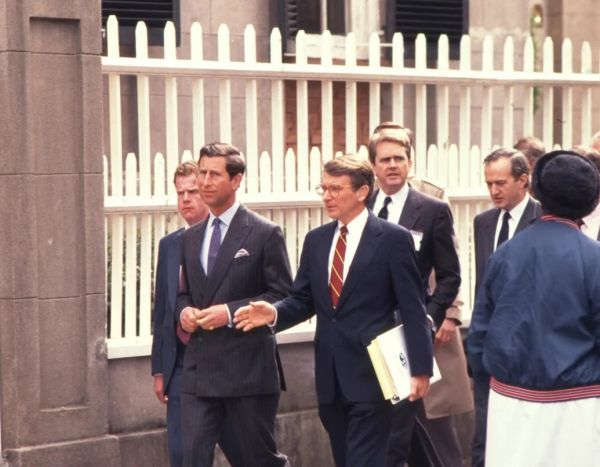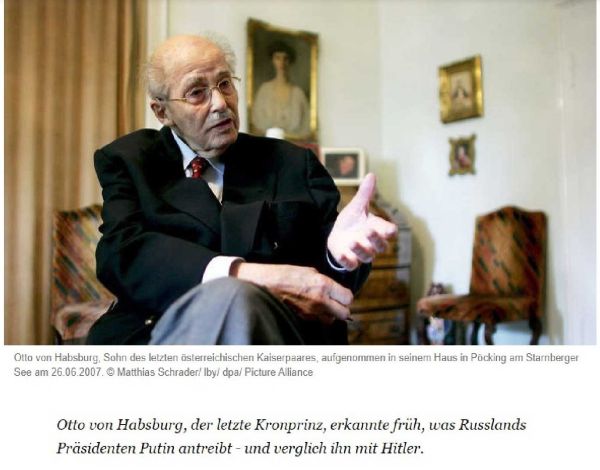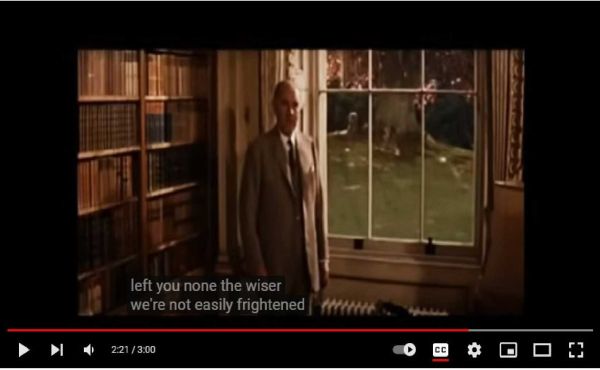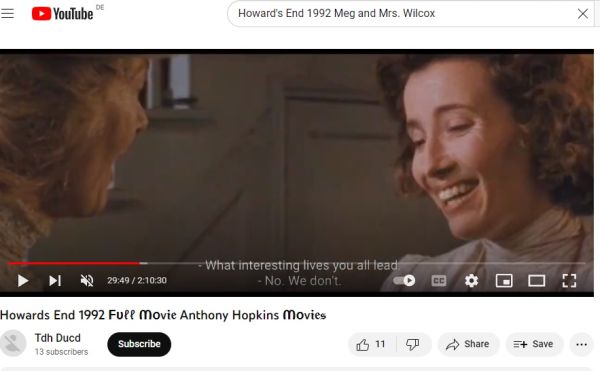King Charles III
King Charles III visited my mother's hometown Charleston, South Carolina, just before his 29th birthday, in October, 1977, as the Prince of Wales. One day during his visit, Charles led a procession down Meeting Street accompanied by the leaders of Charleston's city-government and their respective entourages.
My mother and grandmother watched the procession from the sideline. No one knows why, but as Charles passed my mother and grandmother, he walked over to the sideline where they stood and greeted them. My grandmother was an ethereally sweet person who tended to weep when really excited. Charles did more than greet them; he took their hands, his manner dignified and gracious--a deep, practiced civility.
My photographer-sister took a photo of "the hands that shook the hand of the Prince of Wales." Mother and Granny were so overwhelmed by the event, they went the whole day without washing their hands. Word of the event got around. It made their friends jealous as hell.
I am really more familiar with another "royal-pretender," the late Otto von Habsburg, Pretender to the Throne of the Austro-Hungarian Empire, which governed much of Central and Southern Europe. Otto spoke and acted with more philosophical orientation, more geo-political intentionality, and more social eloquence in several languages, as befits a royal-pretender of a multinational empire, even though he never achieved monarch-status.
Charles, by contrast, has lived much of his life as a faceless public servant, in the shadow of his regal mother, Elizabeth II, maintaining a discreet public face, although his very public failed marriage and relationship with his present wife Camilla Bowles damaged his reputation.
The above-article, "Unerschütterlich," or "Holding Firm," appeared in the Sunday edition of the Frankfurter Allgemeine newspaper on December 4th. It describes the royal reaction to the death of Queen Elizabeth as "The Queen is dead! Long live the King!" The average Briton would have welcomed the royal family maintaining its forward-looking view of the monarchy.
But it is sort of business as usual for a dynasty that has lasted as long as this one has. Queen Victoria died rather appropriately at the end of the 19th Century, as if ending an era to which she lent her name. Her son Edward VII succeeded her in 1901, already sixty years old; so he only reigned for ten years, dying in 1910.
Edward's son George V saw Britain through the long, cruel World War, between 1914 and 1918, which resulted in the execution of his feckless cousin, the Russian ruler Tsar Nicholas II and the exiling of another egregious cousin, Kaiser Wilhelm II of Germany, to the Netherlands--both rulers grandsons of Queen Victoria.
George V died in 1936 and was succeeded by his son George VI who saw Britain through World War II. During the London Blitz, George's advisors urged him to retreat to a safer place outside of London, but he refused. His remaining close to the suffering of his people greatly enhanced the status of the royal family.
Thanks to high-end British literature, Americans can understand the resilience of the British leadership class. From the movie Battle of Britain from 1969, actor Ralph Richardson plays the British ambassador in Switzerland, who has to deal with the intimidating representative from Nazi Germany urging Britain to surrender to the Führer's "reasonable terms."
The ambassador replies to the German, "We don't frighten easily." Later he complains to his wife that "I lost my temper."
In the 1992 movie Howard's End, Margaret Schlegel has a tender moment with the terminally-ill Mrs. Wilcox. When Mrs. Wilcox compliments Margaret on her interesting friends and the active lives they all lead, Margaret deprecatingly replies, "No, we don't; but we have something solid underneath."
What I am really saying is that the British have the advantage of continuity--in the person of the monarch--over the erratic, zig-zagging politics of the United States. Since we do not have anyone to represent continuity in our country, I believe the only course is to divide it. Let each side regain continuity on his own turf.
Otherwise, a naughty movie-maker is going to create a film titled Invasion of the Nation-snatchers. The likely story-line should warn us of the perils ahead.

